Published 14 May 2019 ● Last Updated on 16 May 2019
“We only have one planet Earth and we need to protect it for our future. That is why sustainability should start at home.”
A simple belief…a simple goal…a simple idea…When these three come together, the result is fairly spectacular!
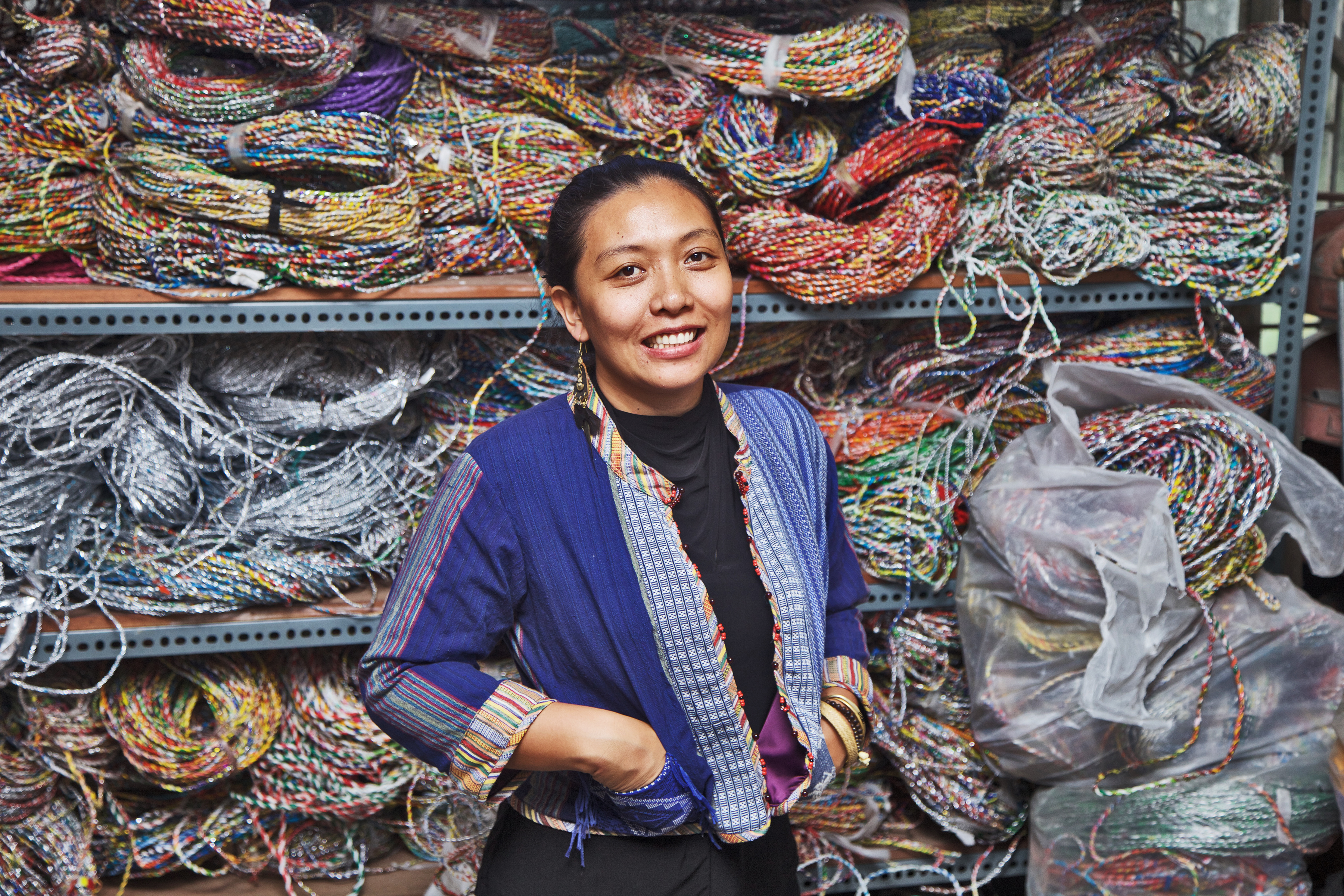
Let me introduce you to Wilhelmina ‘Willie’ Garcia, the Founder of Junk Not, a Philippines based furniture company that is converting plastic waste into cool furniture pieces and table accents. A graduate in Interior Design from St. Scholastica’s College, Manila; she won the grand prize “The Environment Shapes You” by Metrobank Arts and Design Excellence (MADE) in 2007. Protecting the environment and empowering the community are two things close to her heart; both of which she brings together in all the designing work that she does.
Junk Not! Designing for Good
Junk Not started with the simple objective of solving the issue of plastic pollution and being able to provide livelihood to the community in the process. Started in 2009, they initially made bags and fashion accessories but to create a larger impact, Willie started working on home furnishing in 2015.
“I was inspired by the community cleanup projects that would take place. Most people would ask us what would happen to the trash that we collected during the cleanup.” says Willie. It got her thinking and she decided to find a creative way to use this waste instead of it being dumped in the ocean or getting burned.
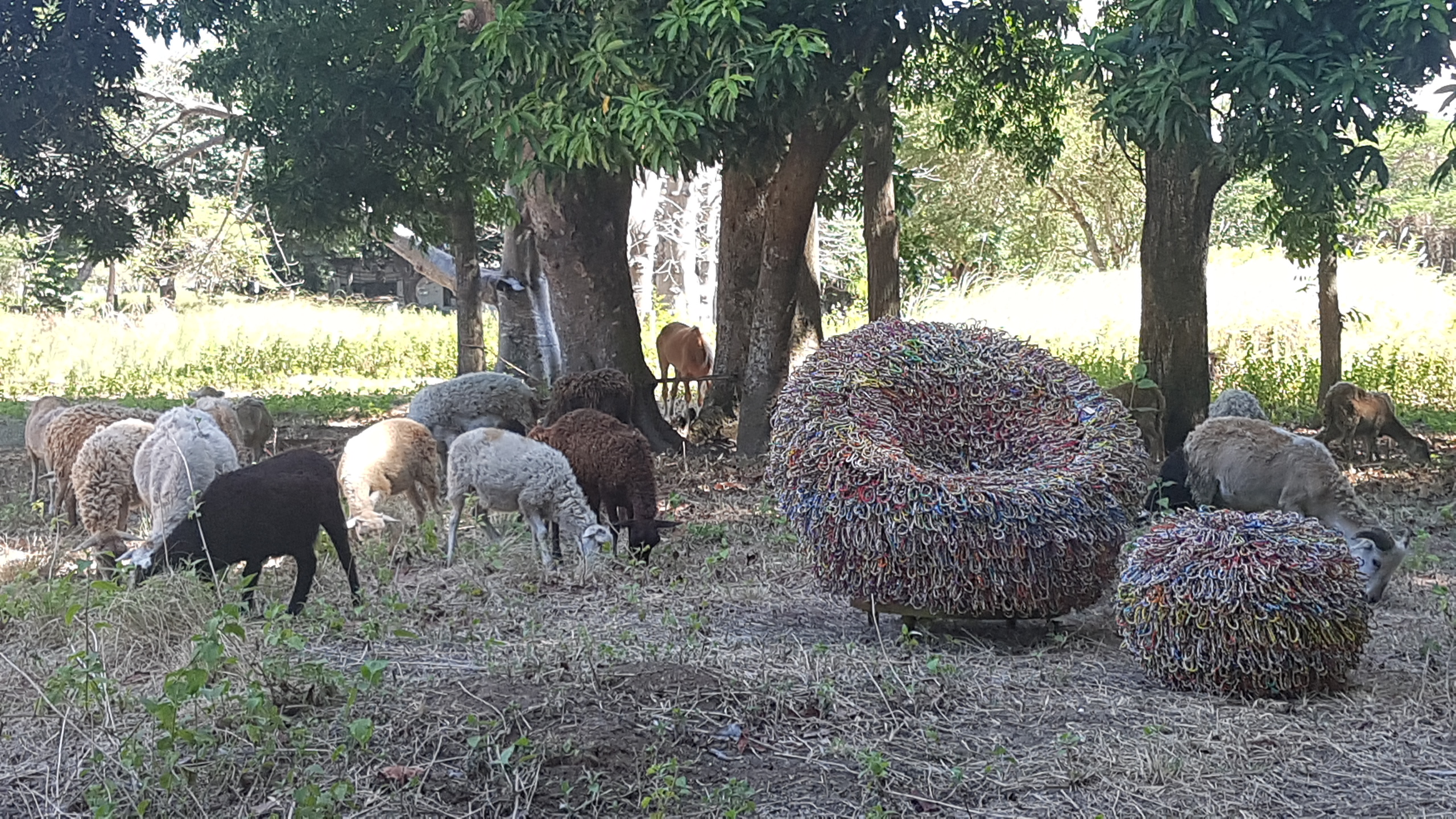
Plastic Waste – The Chosen One
As an interior designer, one of Willie’s guiding principles has been to upcycle products. She has always tried to upcycle waste materials into something useful – pallets for a whole condominium, fossilized leaves as wallpaper, wine bottles converted to room dividers and chandeliers, signage out of tin cans and even newspaper weaving. “At that point of time, I desperately wanted to find a solution to plastic waste as it is one of the biggest problems that we are facing in the world today. That is when I decided to convert the plastic waste into furniture!”
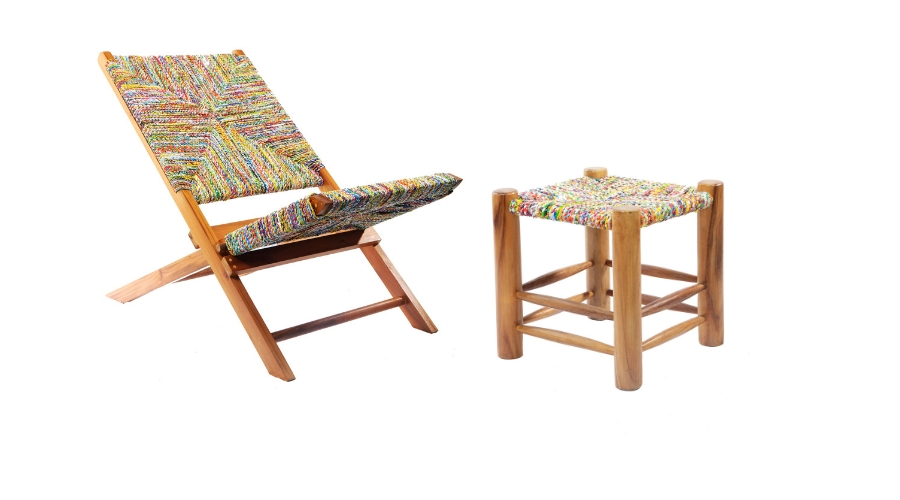
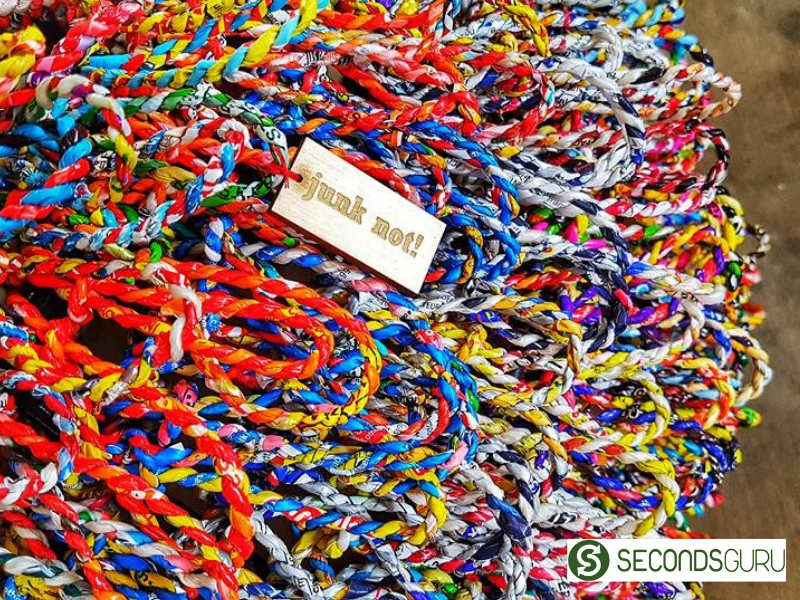
Where does all this plastic waste come from? Junk Not employs women from the community itself to collect plastic waste from their own homes, neighbours, sari-sari stores and schools! They are taught to segregate their waste materials properly: recyclable materials like bottle caps or plastic cutlery can be sold to recyclers or junk shops, while food packaging like chips wrappers, biscuit packets and laundry soap packets are used to make the plastic twine. So, instead of throwing or burning this plastic waste, the women get paid to collect, clean and convert plastic into rope, which is then used in the company’s furniture production.
Community Impact – Benefiting from waste management
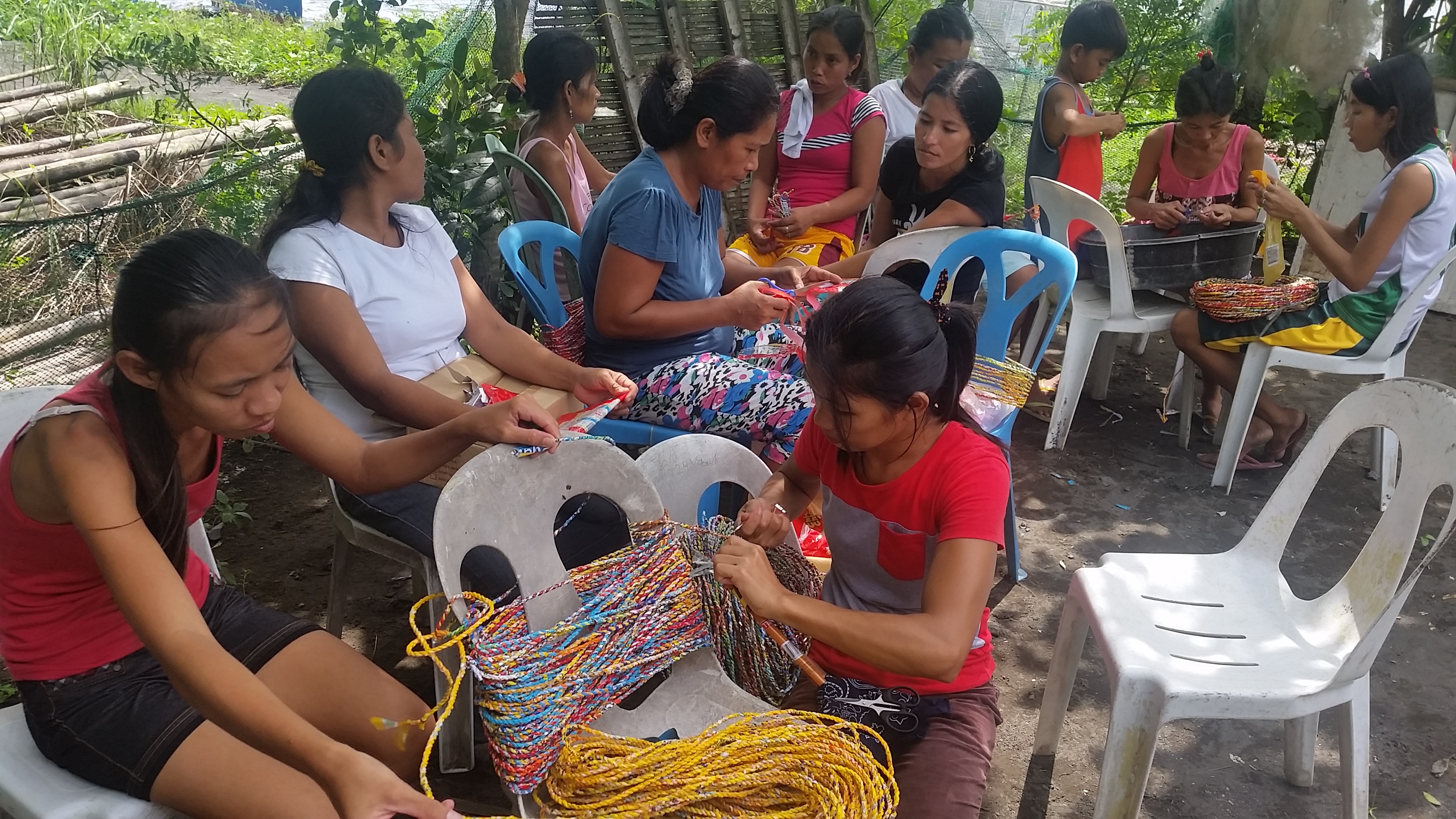
Whoever said garbage doesn’t pay should check out the impact that Junk Not’s work is having on the local community in Alas-as barangay (in municipality San Nicolas, in province Batangas). The women are happy as they are able to earn money by regulating their own waste and converting it into twine that Junk Not uses to create its furnishings. “Plus the women don’t need to keep sweeping their yards every morning and afternoon because their neighbours are slowly changing their habits of waste disposal too,” says Willie.
In their early meetings, Willie does a waste audit and training session for the women of the community. Then, the women collect materials for Junk Not in their own time; there is no need to organise a group clean up session. They clean the plastics, make them into twine, supply to the workshop and get paid for it! In fact, surmises Willie, the process turns women into stewards of the environment.“I can see the impact it has had on the community. They have stopped throwing their food wrappers carelessly post eating. The housewives are happier as they have a means of getting income. And the environment they live in is much cleaner as they have stopped burning their garbage or throwing it in the lake.”
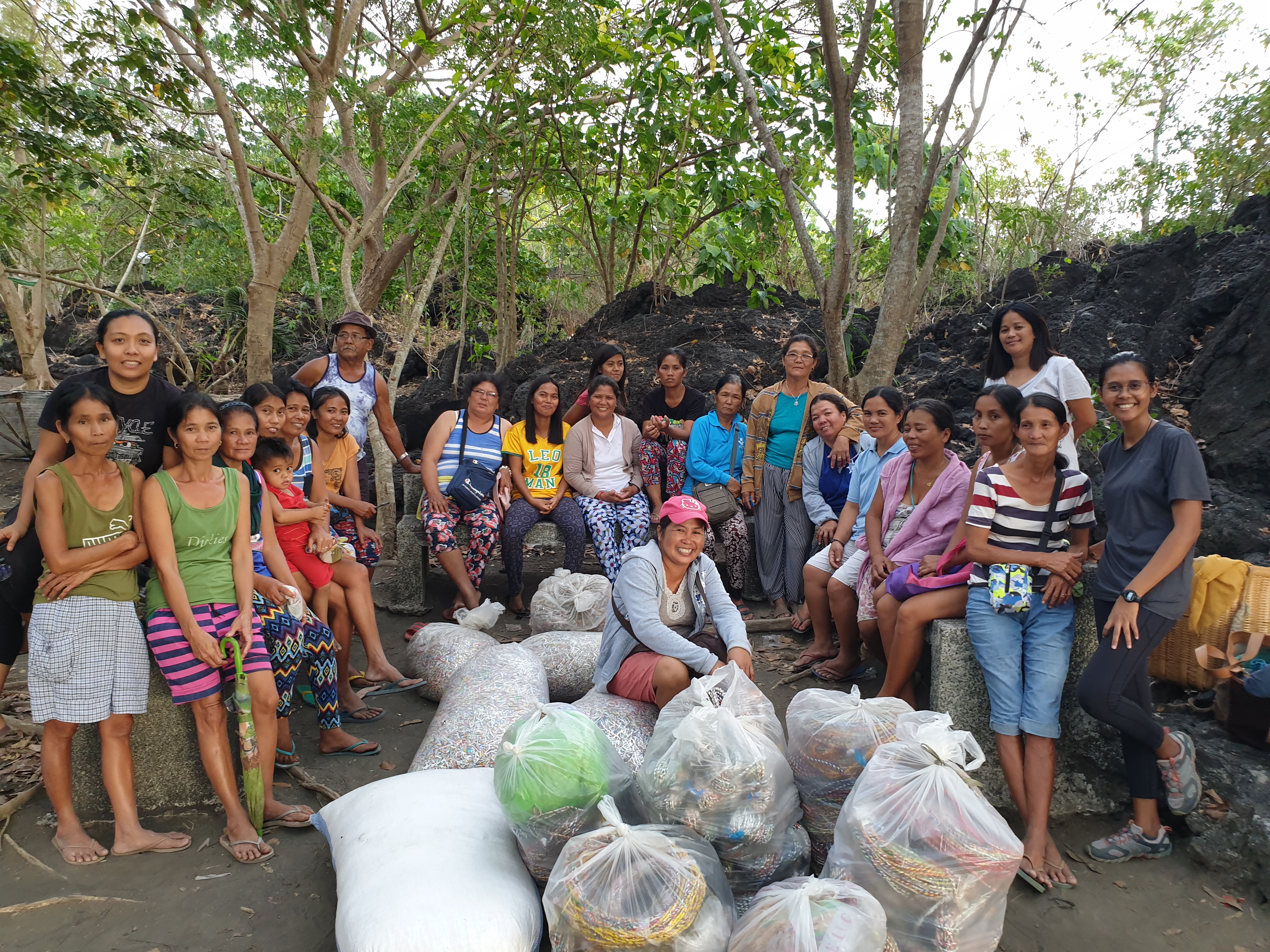
The Process – From Waste to Wow!
Willie lists out the process followed to convert the waste into something useful.
Step 1 – The women collect the community plastic waste (their own waste, from their neighbours, local stores or schools)
Step 2 – Then wash it with soap, dry it out and convert it into twine manually.
Step 3 – The twine is handed over to Junk Not and they get paid for the twine by the yard. The women are not employed by Junk Not; they get paid for whatever they can produce so that they are not encouraged to consume more.
Step 4 – The twine is then taken to the workshop and used to make various home furnishing products.
Step 5 – When sales happen, another 5% will be given back to the community.
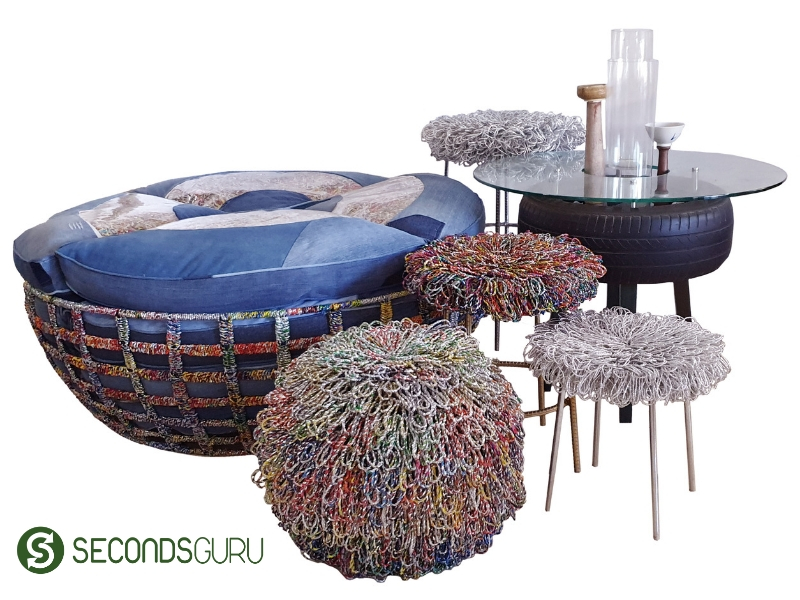
Willie’s ability to envision converting garbage into something so spectacular speaks for itself. The products are trendy and quirky, fit in with any decor and still stand out; the plus point is that it’s good for the environment and the community. Recently, Junk Not launched the Coral collection and dedicated it to marine life conservation. Willie started a fun ‘guessing game’ wherein people had to figure out how much plastic waste was used to create the collection and while everyone enjoyed that bit; the answer is 83 kilos!
Check out some of her home furnishing products here.
The Junk Not team is small – Willie, Marie Cris and Nel Garcia handle the administration work while Angelizza Ramirez is the community program manager. But this small team definitely packs in quite a punch when it comes to impact. Ever since Willie changed her business model and started systematic production in home furnishings, she feels that Junk Not has become more sustainable and with more women getting involved with her project, the impact on the community is much larger.
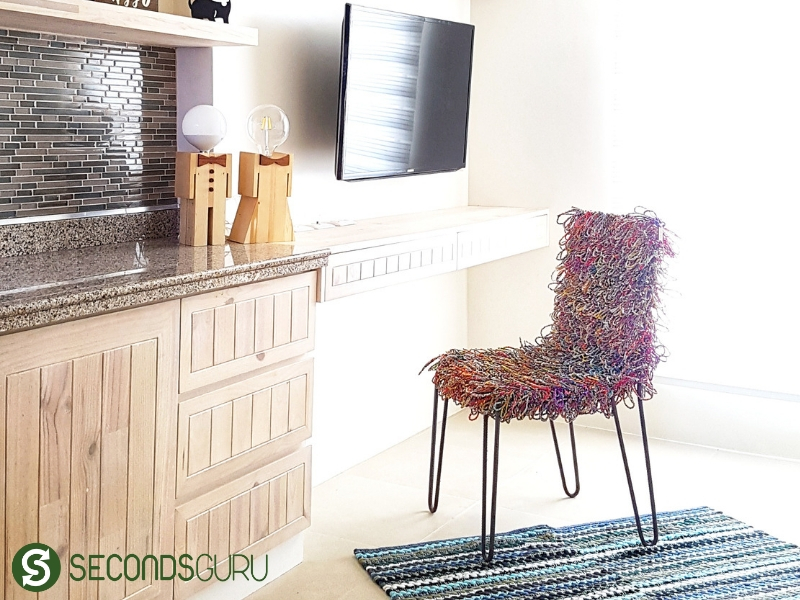
While Junk Not has a showroom in Selah Pods Hotel, Pasay City – Philippines; the work is primarily shown and sold through local and international exhibitions. Her creations have been exhibited in Paris, Belgium and Germany and are available at some specific stores. “Individuals who patronize our work and support us are heroes as they are doing their bit to protect marine life by ensuring that this bit of garbage didn’t end up in the ocean.” feels Willie.
Moving ahead…
“My dream is not to do this all my life. I am trying to solve the plastic pollution problem here but if manufacturers don’t stop using single-use plastic packaging, there is no end to this.” For Willie, it’s always about being able to incorporate the sustainability angle into her work and she is well aware that the solution to plastic pollution lies at the source; not only with the ones who are trying to solve the resultant garbage.
Any plans for Singapore? Well, if they get invited they would be more than happy to come but they do need a sponsor to bring all the furniture across. If you would like to order any Junk Not product, you may contact Willie at design@junknot.ph
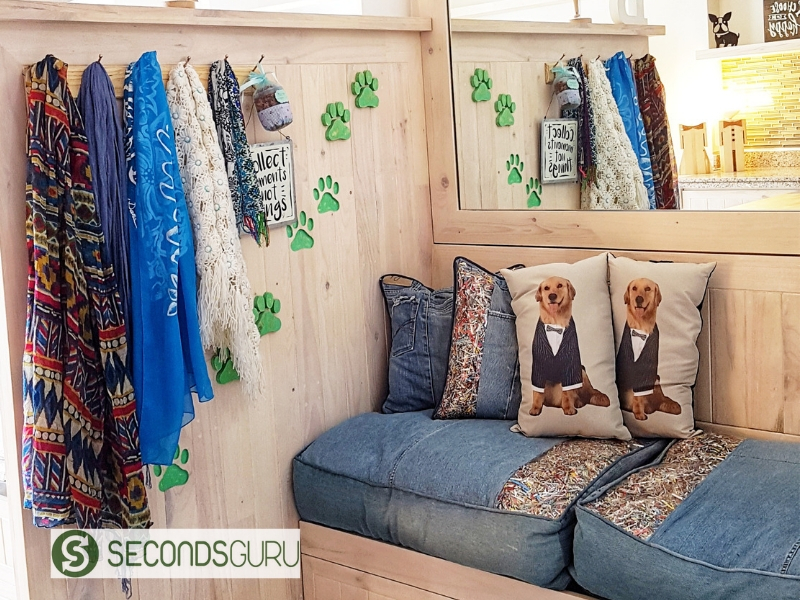
Before signing off, we did ask her to share an idea with us to be able to recycle our own plastic waste at home. “Cut up your plastic waste into small pieces and use them as alternative filler for your pillows and cushions” says Willie. Like I said earlier, it’s a simple idea but such a big impact each one of us can make thanks to it!
We wish Junk Not all the very best for their future endeavours!
To see more of Junk Not‘s work, visit their FB page, Instagram and website.
Photo Credits: Kat Palasi and Ac Dimatatac

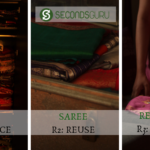

0 Comments